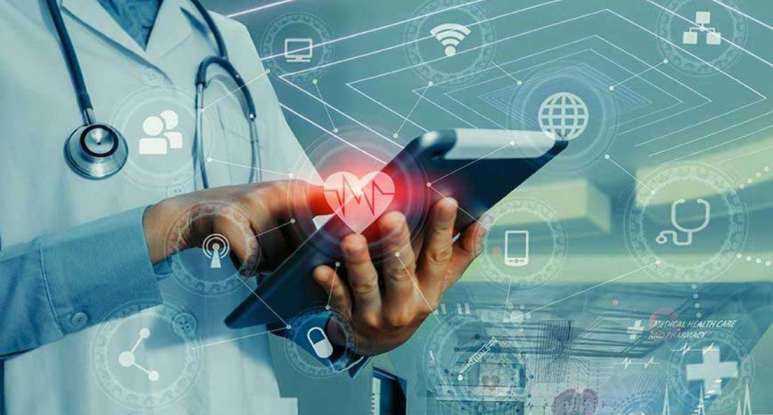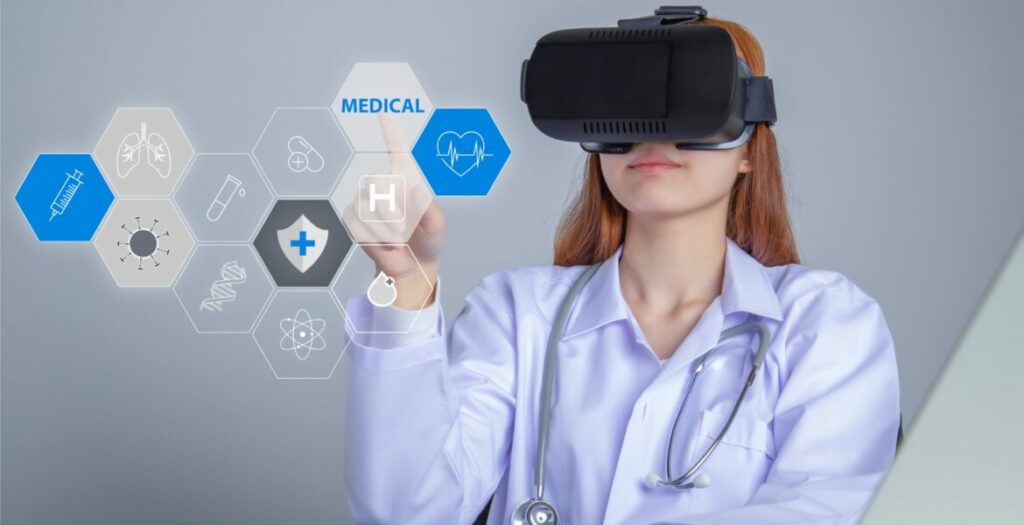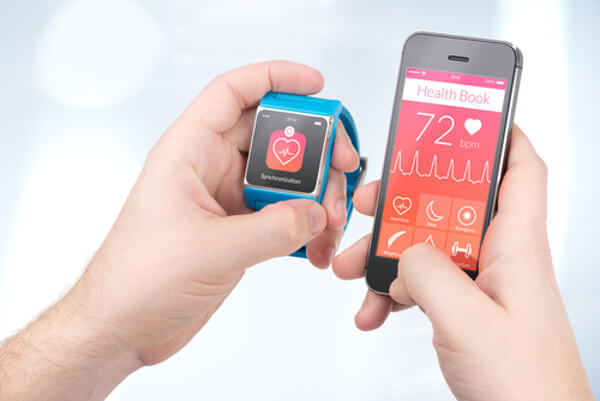The healthcare industry is notoriously quick to accept new technology and develop constantly using the enormous Internet of Things. IoT technology can assist improve drug manufacturing procedures, connect patients with doctors through remote monitoring and virtual visits, and give healthcare professionals rapid and easy access to patient data. IoT can lower costs by streamlining manufacturing, drug reordering, and healthcare.
Due to the Internet of Things’ (IoT) huge potential and variety of uses, including remote monitoring and medical device integration, the IoT has completely changed how the healthcare business now operates. IoT is applied to linked medical equipment in the healthcare industry, including probes, sensor machines, and monitoring systems that may collect real-time health data. In order to improve medical care, the detectors store the data on a centralized cloud or server for further study.
The usage of IoT in healthcare is making a significant contribution to the field. IoT applications range from patient monitoring to assisting patients remotely.
What is the role of IoT in healthcare?
First, let’s look at how IoT works in general, as this will help us understand IoT in healthcare. Through the Internet, sensors-equipped devices can communicate with the real world. Health practitioners can input patient data and collect data from IoT devices. An effective IoT healthcare example is continuous blood glucose monitoring. Now so many giants in the Healthcare sector are looking for a good mobile app development company in Bangalore to take forward their business with IoT Integrated mobile application development.
Each of these gadgets has the ability to talk to other gadgets. These actions occasionally even result in lifesaving or timely aid. An IoT medical device can contact a hospital if a senior citizen falls. IoT gadgets for healthcare will gather passive data and send it to the cloud so that doctors may review it. Look at the patient’s overall health to see if emergency help is needed.
How digital transformation is changing healthcare
1. Wearables that track fitness
Electronic technologies or gadgets known as wearables are utilized to monitor patients’ real-time health data. This includes things like blood pressure, heart rate, blood sugar levels, and other kinds of physical activity. Mobile apps collect health data from these gadgets, which are subsequently sent to the cloud. In order to make better treatment suggestions, doctors can use data to analyze the health-related behaviors of their patients.
2. Smart Hospitals
A centralized electronic health record (EHR) is used by paperless clinics and hospitals to manage patient data. There is no requirement to keep billing and medical records on file. These details are simpler to access and manage when they are stored in a cloud service. Healthcare organizations can gain from smart hospitals in a number of ways, including increased patient involvement, improved communication, asset tracking for the hospitals, workflow optimization, and more.
3. Mobile healthcare (mHealth)
The way patients and doctors engage in person is evolving. Doctors may now treat patients in new ways thanks to mobile health apps. When dealing with medical emergencies including asthma attacks, heart failure, and diabetes, telemedicine, and remote patient health monitoring can save patients’ lives. Clinical trials already frequently integrate mHealth apps and devices, and now the biggest pharmaceutical companies are focusing on connected medication delivery platforms.
Benefits of IoT in healthcare sector
1. Simultaneous reporting and monitoring
Millions of lives could be saved if linked gadgets could monitor users in real-time in the event of medical emergencies like heart failure, diabetes, asthma attacks, etc. Smart medical device connectivity allows smartphone apps to monitor conditions in real-time and gather vital health and medical information.
IoT-connected devices capture and communicate health data, such as information on blood pressure, oxygen levels, blood sugar levels, weight, and electrocardiograms. Data that has been saved in the cloud can be shared with authorized people based on shared access permissions.
2. End-to-end connectivity and economics
Through healthcare mobility solutions, IoT can aid in the automation of healthcare and patient healthcare workflows. Interoperability, machine-to-machine connectivity, information exchange, and data transfer are made possible by IoT in healthcare, greatly reducing the cost of providing healthcare services.
3. Data collation and analysis
It’s harder than it seems for healthcare workers to manage vast amounts of data. IoT-enabled mobile solutions may analyze and separate data that is acquired in real time by IoT-enabled mobile devices.
This will reduce the collection of raw data and can drive vital healthcare analytics and data-driven insights, ultimately reducing errors and speeding up decision-making.
4. Tracking and Alerting
With continuous notifications and real-time alerts for effective monitoring, analysis, and diagnosis in life-threatening situations, real-time tracking and alerting helps protect the health of critically ill patients. Real-time tracking, notification, and monitoring are made possible by IoT-powered healthcare mobility solutions.
Challenges of IoT in Healthcare
1. Data Security and Privacy
Data security and privacy are among the biggest issues facing IoT. IoT-enabled mobile devices can collect data in real time, however, the majority of them do not adhere to data standards and protocols.
When it comes to data ownership and governance, there is a lot of confusion. Data stored in IoT-enabled devices is therefore more susceptible to theft and hacking attacks by cybercriminals who may compromise personal health information.
2. Cost
You won’t be shocked to find this here, most likely. One of the biggest obstacles to implementing IoT applications for healthcare mobility solutions is the cost. However, if the IoT installation resolves a genuine issue, these investments are completely justified.
Although it will cost a lot of money and resources to develop IoT applications, the reward will be just as significant when your company uses IoT to improve business processes, generate more income streams, and expand its business potential.
3. Data overload
Large volumes of data are gathered and processed by IoT medical devices. For doctors, this can result in a lack of accuracy and data overload. Applications for the Internet of things in healthcare can produce a tonne of data. It aids in making treatment choices challenging.
4. Multiple devices and protocols
The integration of multiple types of devices presents a barrier to IoT implementation in healthcare. The reason for this obstacle is that equipment manufacturers have not yet reached a consensus on communication protocols and standards.
This has led to each manufacturer creating its own separate ecosystem of IoT devices that do not work with competing manufacturers’ devices and applications. In this case, there is no synchronization protocol to follow for data aggregation. Processes are slowed down by this non-uniformity, which also limits the application of IoT in healthcare.
Conclusion
We know IoT is clearly a game-changer for the healthcare industry. Healthcare is one of the most critical industrial sectors, immune to all major technologies except IoT. Additionally, IoT application development has changed the way the healthcare industry provides facilities and services.



IoT Integration in the Healthcare Industry – IoT Loops is an interesting blog post. I’m looking forward to reading more about how IoT can be used in the healthcare industry.
Fascinating how IoT is transforming healthcare! Remote patient monitoring and data-driven insights are key benefits. Ashapura Softech offers development expertise for healthcare IoT solutions, improving patient care and operational efficiency.
#IoTInHealthcare #HealthcareInnovation